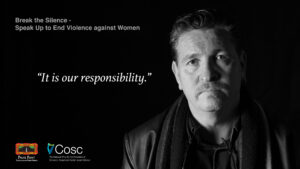“I am deeply concerned at the persisting social exclusion and discrimination Travellers are confronted with in Ireland”, said the Council of Europe’s Commissioner for Human Rights, Nils Muižnieks on 25th November 2016, concluding a three-day visit to the country.
With Travellers having been affected in a gravely disproportionate manner by budget cuts as a result of austerity, the Commissioner emphasized the urgent need to re-invest in this community. « I warmly welcome signals that Travellers will soon be recognised as an ethnic group in Ireland, an acknowledgment that the community concerned has been awaiting for a long time.”

©Photo by Derek Speirs
Combined with targeted policy measures and more effective involvement of Travellers themselves, this important acknowledgment has the potential of marking a new departure in addressing the serious inequalities that continue to affect the members of this community in accommodation, health, education and, in fact, all fields of life”.
Referring to the tragic fire that one year ago claimed the lives of ten persons, including children, on a temporary Traveller halting site, the Commissioner stressed the urgency of addressing insufficient provision of Traveller-specific accommodation, inadequate conditions of many Traveller sites and inadequate safeguards against forced evictions.

As the national authorities take measures to address a general housing crisis in Ireland, they should ensure that local authorities spend the budget allocated by the state on accommodation solutions that meet the specific needs of Travellers. “I could see that, in some cases, a little investment and better communication could go a long way in ensuring basic human rights and the dignity of members of the Traveller community” he said after a visit to two Traveller sites in the Dublin area.

Women’s Rights
As concerns women’s rights and gender equality, the Commissioner welcomed the signature by Ireland of the Council of Europe Convention on Preventing and Combating Violence against Women and Domestic Violence in November 2015 and the announcement that a second National Women’s Strategy was being prepared. “On the International Day for the Elimination of Violence against Women, I strongly urge Ireland to ratify the Istanbul Convention and take concrete measures to tackle domestic violence. This includes allocating adequate and sustainable funds to address the shortage of shelter spaces for women victims of violence” said the Commissioner, who also visited a shelter and a counselling centre for women victims of domestic violence in Dublin. “In Ireland, austerity measures have exacerbated older forms of gender inequality which hamper women’s access to justice and jeopardise progress in women’s rights”. The Commissioner stressed the importance of continuing to raise awareness about domestic violence and gender-based violence among all relevant stakeholders, and in particular police staff and the judiciary so as to improve the response of the justice system to these phenomena.

Referring to women’s sexual and reproductive health and rights, the Commissioner noted that Ireland possesses one of the most restrictive legal frameworks on abortion in Europe. Noting the establishment of a Citizens Assembly that will consider the Eight Amendment of the Irish Constitution, which currently limits the scope of any reforms of this framework, the Commissioner calls for moves towards decriminalisation of abortion, at least in the case of risks for the health of the mother, fatal foetal abnormality and rape or incest.
The Commissioner also stressed that further efforts should be made to deal with all historical abuses against women and children that occurred in Ireland in different contexts, including women’s homes, schools and healthcare institutions. Noting a number of measures taken to address these abuses, including compensation schemes put in place by the authorities, the Commissioner stressed the need to ensure that international human rights standards in this field are fully respected. In particular, all groups of victims have a right to truth, full support and effective remedies, as well as prompt, independent and thorough investigations into allegations of abuses capable of ensuring accountability.
Inclusive Education
The Commissioner called on Ireland to move towards more inclusive education that would respond to the needs of an increasingly diverse society. “I have a particular interest in inclusive education as I consider it vital for social cohesion in diverse societies, an issue that is particularly topical in Ireland” said the Commissioner.

The current Irish education system, whereby over 95% of primary schools are denominational and run by private institutions, poses a number of challenges in terms of access to school without discrimination, particularly on religious grounds. “I was informed about the Government’s commitment to open 400 additional non-denominational and multi-denominational schools by 2030. However, it is urgent that the state addresses the remaining barriers, including legal barriers, faced by students in securing access to school without discrimination and takes measures to ensure that all schools better reflect the diversity of Irish society.”
The Commissioner’s report on his visit to Ireland is forthcoming.

